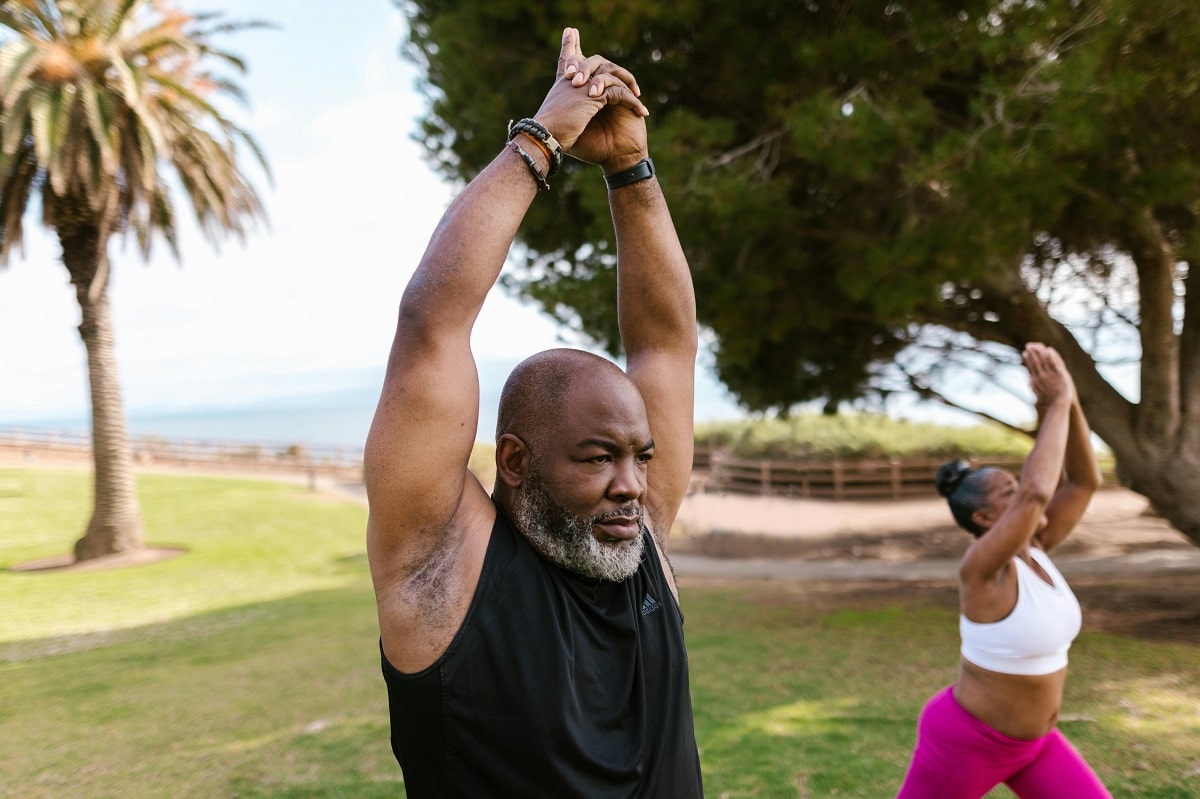1
HOME > Health & Fitness >
MAINTAINING MEN'S HEALTH AFTER 50
Written by Menswear Style in Health & Fitness on the 11th July 2024

Hitting your fifties is sure to feel like entering a new and positive chapter in your life. However, you could start noticing changes that weren't there before, from how your body feels to what it needs.Maintaining good health now isn't just about feeling great today - it's about setting yourself up for decades of well-being. So, let’s explore some top tips for maintaining your health after fifty.
Optimise Nutrition
After the age of fifty, your nutritional needs will shift. Focus on incorporating more fibre, lean proteins, and healthy fats into your diet. These can support heart health and maintain muscle mass. And fruits, vegetables and whole grains are essential. Think of them as essential tools in your longevity toolkit. Don't forget hydration; staying well-hydrated aids digestion and joint health. Consult with a nutritionist to personalise your diet plan based on individual needs and medical history for optimal results.

Perform the Right Exercises as Part of a Regular Workout Routine
Staying active after fifty is crucial for maintaining mobility, strength and overall health. Tailor your workout routine to include:
- Cardio Activities. Walking, swimming, jogging, and cycling improve heart health and stamina.
- Strength Training. Light weights or resistance bands help maintain muscle mass and bone density.
- Flexibility Exercises. Yoga or stretching can enhance flexibility and prevent injuries.
- Balance Workouts. Tai Chi or balance drills reduce the risk of falls.
Mixing these activities ensures a balanced fitness regime that keeps you feeling strong and agile well into your golden years.
Get Essential Health Screenings
Once you hit fifty, regular health screenings become vital. Make sure you're scheduling annual check-ups that include blood pressure and cholesterol tests. These will help to catch early signs of heart disease and other conditions. Also, colonoscopies every ten years can prevent colorectal cancer by detecting precancerous polyps. Prostate health is another critical area to monitor. PSA tests are common, but staying informed about emerging options like new prostate cancer treatment techniques ensures you’re considering all avenues for optimal care. Remember, early detection often means better outcomes and simpler treatments.

Utilise Proactive Mental Health Strategies
Mental health is as important as physical health. Engage in activities that keep your mind sharp, such as reading, puzzles or learning new skills. And stay socially active by connecting with friends and family. Mindfulness practices like meditation can reduce stress and improve emotional well-being. Don’t hesitate to seek professional help if you experience prolonged anxiety or depression; therapy and counselling provide valuable support. A proactive approach keeps your mental resilience strong.
Hormonal Changes: Know What to Expect
As you age, hormonal changes are inevitable. Testosterone levels naturally decline, which can affect energy, mood, and muscle mass. Symptoms like fatigue, reduced libido, and even mild depression may arise. You don’t have to take this lying down. Regular exercise boosts testosterone production naturally. Strength training is particularly effective. Also, consider your diet - foods rich in zinc and vitamin D support healthy hormone levels. If symptoms significantly impact your life, talk to your doctor about options such as testosterone replacement therapy (TRT). But approach it cautiously; TRT isn't suitable for everyone and requires careful medical supervision. Staying informed helps you navigate these changes smoothly well into your senior years.
Trending
2
3
4
5
6
7
8
9
10









